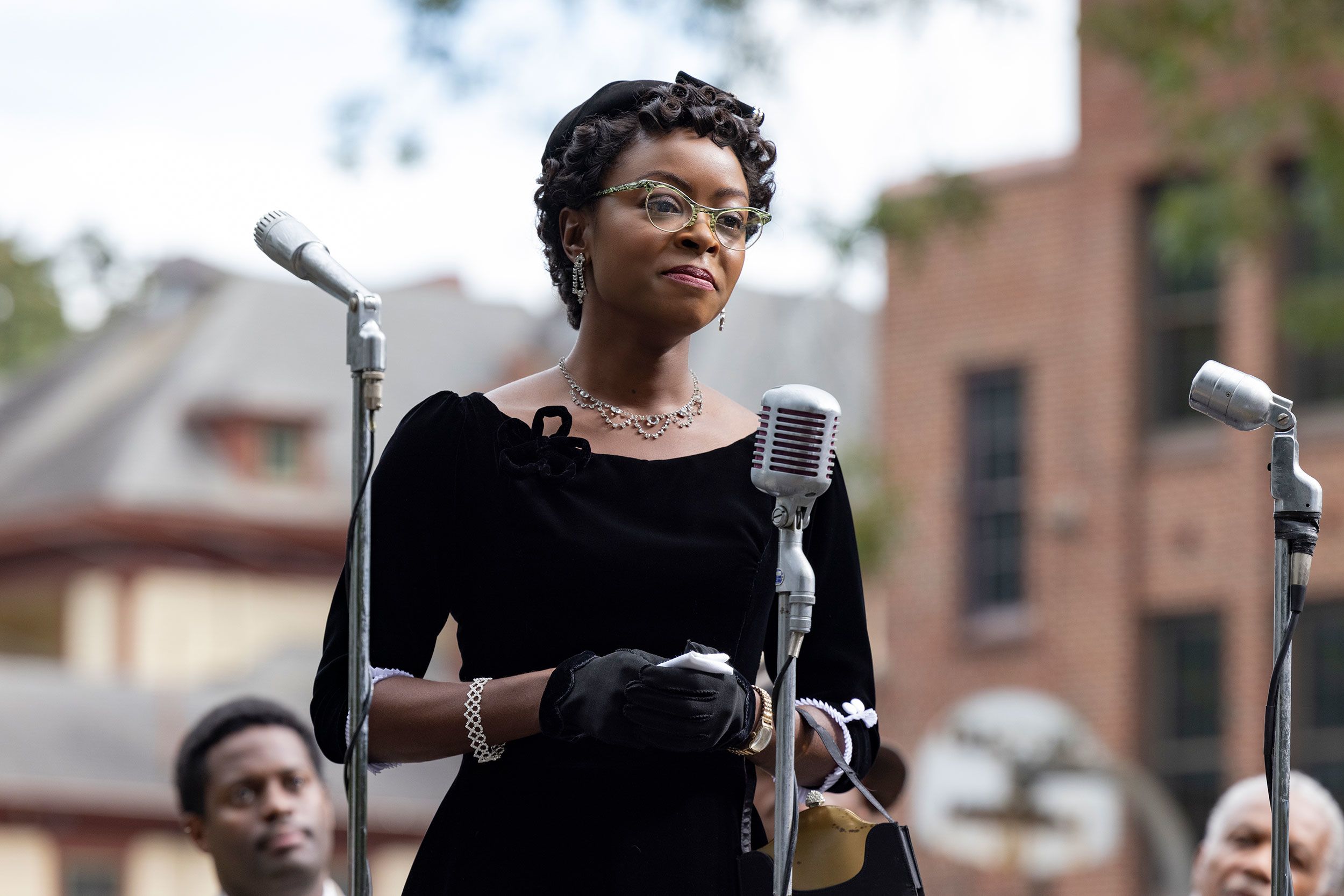Chinonye Chukwu’s Till finds the Clemency writer-director facing the story of Emmett Till, the 14-year-old boy lynched in 1955. More specifically the story of Emmett’s mother, Mamie Till, who became an ardent activist in the decades following her son’s murder. The film comes less than a year after the implementation of the Emmett Till Antilynching Act, a piece of legislation nearly 70 years in the making, and the first federal anti-lynching bill.
With Till, Chukwu focuses on Mamie’s journey before and after Emmett’s death, bathing the screen in vibrant colors and light even through moments of anger, evil, sadness, and pain. The director, who co-wrote with Michael Reilly and Keith Beauchamp, opts for warmth and brightness, especially as she shoots the Chicago lives of Emmett and Mamie. Portraying Emmett and Mamie are Jalyn Hall and Danielle Deadwyler, respectively, attempting to fill these lives with an extreme level of humanity.
The latter has been on a tear lately, garnering acclaim for her roles in The Harder They Fall and Station Eleven, though Till is an entirely different challenge, one she fully embraces. Deadwyler’s performance should do more than help her break through, and beyond earning her nominations and awards, it’s a performance that grants empathy to an impossible situation. She transcends, doing much with her eyes glued to the center of the screen by Chukwu’s camera. She’s an indelible force playing an indelible figure—a role and a person that Deadwyler doesn’t imitate, but rather embodies.
Chukwu’s film approaches violence with care and compassion: she chooses not to display the horror of Emmett’s lynching and death, allowing audiences to sit in silence during a wide shot wherein his screams are all that can be heard. She again focuses on the aftermath, giving weight to the moment Mamie sees her son’s mutilated body. She gives Mamie her time with Emmett’s corpse before bringing us into the space with her. There’s respect in every decision that Chukwu makes.
Till‘s second half plays out like a courtroom drama for the case against Emmett’s murderers. It’s here that Chukwu’s drama suffers from conventional story beats and procedural giveaways: a simmering tension doesn’t build towards the expected dramatic conclusion, as Deadwyler’s testimony in the court cobbles together multiple scenes that feel less creative than the surrounding material.
The supporting cast is an assembly of veterans lending even more credibility to Chuwku’s feature. Whoopi Goldberg, Frankie Faison, and John Douglas Thompson stand out as various members of Till’s immediate and extended family, filling the frame around Deadwyler with those who recognize the weight of this story. But this movie belongs to her, showing there’s only one way to play someone as important as Mamie Till: with immense understanding.
Till further secures Chukwu as a filmmaker with a willingness to tell stories assessing the violence of America—important ones rife with consideration and dignity. It puts Deadwyler squarely into the conversation for the best performances of the year. And it humanizes a young Black boy, taken too early, from a story many audience members likely learned about but never investigated. It gives time, credence, and a stage to Mamie, a woman immortalized through her motherhood and 50 years of advocacy overlooked that has become overlooked. It’s a timely, essential piece of filmmaking.
Till premiered at the New York Film Festival and is now in limited release.

